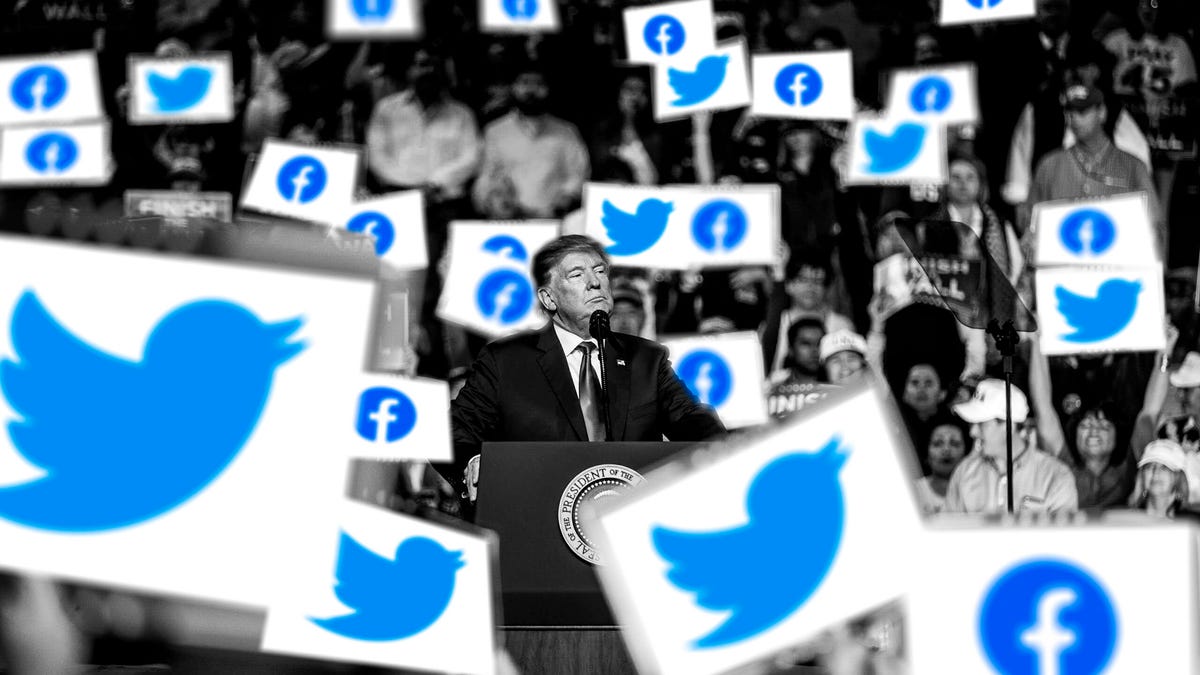Trump's social media executive order faces lawsuit
The nonprofit Center for Democracy and Technology alleges that the "retaliatory" order violates the First Amendment.

Trump's relationship with social media: It's complicated.
The nonprofit Center for Democracy and Technology is taking aim at US President Donald Trump's social media executive order. The CDT filed a lawsuit against the president on Tuesday, alleging that the order violates the First Amendment.
"The order is plainly retaliatory: it attacks a private company, Twitter , for exercising its First Amendment right to comment on the President's statements," the lawsuit says. "More fundamentally, the order seeks to curtail and chill the constitutionally protected speech of all online platforms and individuals by demonstrating the willingness to use government authority to retaliate against those who criticize the government."
Last week, Trump tweeted that mail-in ballots for the November election would be "substantially fraudulent," prompting Twitter to apply a fact-checking label to the comments, saying they contained "potentially misleading information" and providing a link so users could learn more. Trump followed by tweeting that he would take a "big action" against social media companies.
The situation culminated in Trump signing an executive order last Thursday targeting social media platforms, like Twitter and Facebook. The order instructs the Commerce Department to ask the Federal Communications Commission to repeal or restrict Section 230 of the Communications Decency Act from 1996, a law that protects online platforms from liability for content posted by users.
"The censorship and bias is a threat to freedom itself," Trump said at the signing. He accused social media companies of failing to be "neutral platforms."
On Friday, Twitter also labeled a tweet by the president about protests and riots in Minnesota over the death of George Floyd in police custody. This time, Twitter screened out Trump's tweet behind a warning label that says the post violates the site's rules about "glorifying violence." But because the president's words are a matter of public interest, Twitter said, users can click a View button to go ahead and read Trump's tweet.
The executive order is "designed to deter social media services from fighting misinformation, voter suppression and the stoking of violence on their platforms," Center for Democracy and Technology chief executive Alexandra Givens said on Tuesday.
"CDT filed suit today because the President's actions are a direct attack on the freedom of speech protected by the First Amendment," Givens said. "The government cannot and should not force online intermediaries into moderating speech according to the President's whims. Blocking this order is crucial for protecting freedom of speech and continuing important work to ensure the integrity of the 2020 election."
Meanwhile, Facebook CEO Mark Zuckerberg defended his refusal to take down or flag any similar posts earlier Tuesday, despite being slammed by civil rights leaders, and despite some Facebook employees staging a protest Monday. Zuckerberg said last week that social media platforms shouldn't be fact-checking the president.

